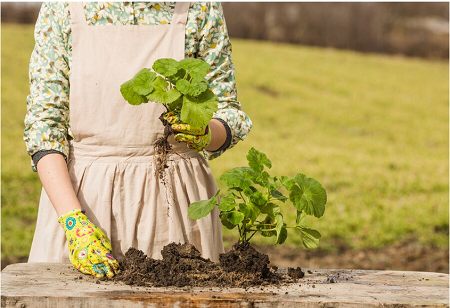
Biochemical Pest Controls Spearhead Sustainable Farming & Holistic Pest Management Worldwide
Biochemical Pest Controls Spearhead Sustainable Farming & Holistic Pest Management Worldwide. The increasing recognition of the detrimental impacts of artificial pesticides on human health and the environment has spurred a rising interest in biopesticides.
The escalating recognition of the ecological and health issues associated with synthetic pesticides is motivating farmers to pursue more sustainable alternatives. Biopesticides, sourced from natural reservoirs, present a viable substitute, fostering crop protection by nurturing beneficial microorganisms in the soil while mitigating adverse environmental consequences.
Furthermore, their incorporation into integrated pest management (IPM) schemes enables precise pest control, fostering sustainable agricultural methodologies worldwide.
As per the projections by MarketsandMarkets, the biopesticides sector is expected to attain a value of USD 13.9 billion by 2028, rising from USD 6.7 billion in 2023, exhibiting a Compound Annual Growth Rate (CAGR) of 15.9% during the forecast period. Driven by stringent regulations governing synthetic pesticides and a growing preference for organic produce, the utilization of biopesticides has remained significant in North America and Europe.
Advancements in biopesticide technology, the burgeoning organic food market, and heightened awareness regarding sustainable practices are anticipated to further propel market expansion in emerging economies like Brazil, Argentina, China, and India.
Concentrate on sustainable agricultural methods to bolster the expansion of biopesticides.
The desire for organic and environmentally friendly food is increasing as consumers become more aware of the ecological impact of traditional farming methods, spurring the demand for crops cultivated using biopesticides. Governments worldwide are promoting the adoption of biopesticides by enacting supportive regulatory frameworks.
These frameworks encompass various incentives, subsidies, and streamlined registration processes for biopesticide products. In the United States, the registration process for biopesticides typically takes 12 to 18 months, significantly shorter than the approximately 36 months required for conventional pesticides. Additionally, the registration fees for biopesticides are comparatively lower.
Continual research and development endeavors are broadening the spectrum and effectiveness of biopesticides within integrated pest management (IPM) strategies. Major companies like Bayer AG, Syngenta, and Corteva Agrisciences are dedicating resources to developing innovative formulations to enhance the shelf life and efficacy of biopesticide products.
Biopesticides in Support of Sustainable Agriculture and Integrated Pest Management (IPM)
Biopesticides, which are derived from natural sources such as animals, microbes, plants, bacteria, and specific minerals, are integral to sustainable agricultural practices. Their utilization is gaining popularity due to their safer and more environmentally friendly characteristics compared to traditional pesticides.
This inclination resonates with the global movement toward sustainable agriculture, where environmentally friendly solutions are pivotal in mitigating harm to ecosystems. Biopesticides play a crucial role in IPM by reducing chemical inputs, fostering a balanced and resilient agroecosystem.
Progress in microbial studies to bolster the forthcoming expansion of biopesticides.
Extensive investigation conducted by the leading entities in the agricultural safeguarding sector has spurred the efficient utilization of biological cues to activate RNAi-targeted genes, thereby enhancing resilience against diseases and pests while augmenting both yield and quality. Bayer AG (Germany) is pioneering microbial and RNA interference (RNAi) technology, enabling farmers to embrace superior alternatives for administering biological substances.
Enterprises like Greenlight Biosciences are prioritizing the development of RNAi-centered biopesticides for biological crop safeguarding. Monsanto Company (US) secured EPA approval in 2017 for its genetic modification technology utilizing RNA interference for eradicating insect pests.
Corteva Agriscience (US) also acquired licenses for two insect attributes from Monsanto Company (US), featuring an RNAi-based rootworm trait. Governed within the realm of biopesticides in the US, this technology is experiencing heightened adoption across the industry, presenting a pioneering solution tailored for specific pest attributes in distinct crops.
Technological constraints on the utilization of biological goods
Biological commodities exhibit a brief or restricted shelf duration and a heightened likelihood of pollution. A prominent challenge in agricultural inoculation technology is the persistence of microorganisms during preservation.
Additional concerns involve susceptibility to sunlight, growth substrates, the physiological condition of microorganisms at harvest, temperature regulation during preservation, and the moisture content of inoculants, all impacting their shelf longevity. Compatibility with other agricultural commodities, like synthetic fungicides and herbicides, also presents obstacles to the utilization of microbial inoculants in soil.
Some of the major technological constraints with the use of biological products include the following:
1. Utilization of inadequate and ineffective strains for production. 2. Deficiency of seasoned, proficient, and technical personnel. 3. Absence of top-notch carrier materials or utilization of diverse carrier materials by producers without validating the material's quality. 4. Limited longevity owing to the impact of diverse abiotic and biotic stressors. 5. Efficacy of foliar application stimulating the market for biopesticides.
In recent years, the foliar method of application has gained popularity due to its ability to facilitate more precise and efficient utilization of inputs. This approach enhances the efficacy of biopesticide products by directly administering them to the leaves.
By directly applying these products to the leaves of plants, they can be absorbed more rapidly and effectively, leading to expedited outcomes and enhanced overall effectiveness.
Employing microbial-based biopesticides to stimulate market expansion.
Microbial-based biopesticides exhibit high specificity in targeting designated pests, sparing beneficial insects and organisms. Consequently, they integrate sustainable farming practices. Microbials, such as bacteria, fungi, viruses, and protozoa, serve as natural adversaries to pests by either directly infecting and eliminating them or disrupting their life cycles and behavior.
This precise targeting aids in maintaining ecological equilibrium and mitigating the emergence of pest resistance. Furthermore, microbial products possess minimal environmental footprint, as they naturally degrade without leaving detrimental residues in soil, water, or air.
Prospects for growth abound in emerging regions like the Asia Pacific and South America.
As per FAOSTAT data, China, India, Brazil, and Argentina have emerged as significant consumers of pesticides. With the surge in food demand in these regions, pesticide usage has correspondingly increased to enhance crop yields.
Nevertheless, concerns over pollution, soil contamination, and the adverse effects of chemical pesticides on the food chain have become prominent issues. To tackle these challenges, governments are advocating for the adoption of integrated pest management (IPM) practices and sustainable crop protection methods.
Emerging regions like the Asia Pacific exhibit promising growth prospects due to the availability of biopesticide products, a substantial presence of organic farming, increasing farmer awareness, cultivation of high-value cash crops, and effective promotion and marketing of biopesticides.
In countries such as India, China, and Brazil, where farmers typically operate on smaller landholdings and face economic constraints, government bodies offer subsidies and implement favorable regulatory frameworks to bolster large-scale production and incentivize biopesticide usage. The biopesticide market in these regions presents opportunities for newcomers owing to a relatively limited number of producers and low entry barriers.
Eco-friendly pest control sector.
Leading firms in the industry feature a diverse range of products, cutting-edge technologies, and robust international sales and marketing infrastructures. Major players in this sector encompass BASF SE (Germany), Bayer AG (Germany), Syngenta (Switzerland), UPL Limited (India), FMC Corporation (US), Marrone Bio Innovations, Inc. (US), Novozymes (Denmark), Nufarm (Australia), Isagro S.p.A (Italy), Certis USA L.L.C. (US), Koppert (Netherlands), Biobest Group NV (Belgium), SOM Phytopharma (India) Limited (India), Valent BioSciences LLC (US), and STK Bio-Ag Technologies (Israel).
These market participants are prioritizing expanding their footprint through agreements and partnerships. They maintain a significant presence in North America, Asia Pacific, and Europe. Furthermore, they boast manufacturing facilities and robust distribution networks spanning these regions.



